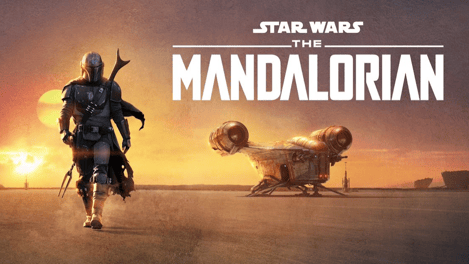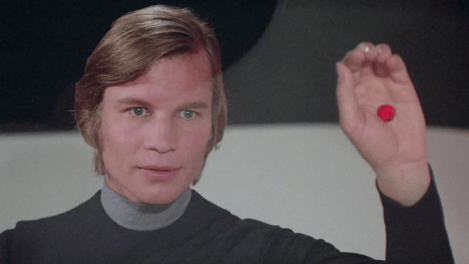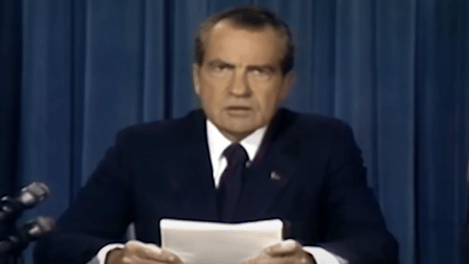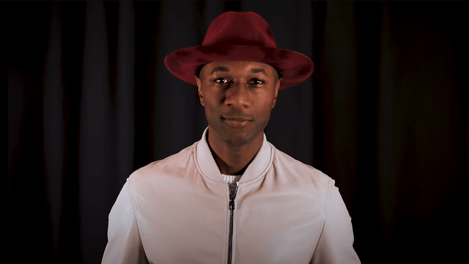
Respeecher's Voice Cloning Technology Revives Tommy Muñiz for Modern 'Los García' Production
Despite the ethical concerns around the cloning and production of voices of deceased individuals, we believe that some circumstances warrant an exception. When consent of a family’s estate is obtained and ethical norms are observed, the final product can be a work of significant cultural impact.
At Respeecher, we only begin work once we obtain permission from the estate holders of the person whose voice we intend to clone. The case of Tommy Muñiz is another story of our successful implementation of voice cloning, leading up to an emotionally beautiful result.
The Challenge
Lucas Tomás Muñiz Ramírez, better known as Tommy Muñiz, was a famous Puerto Rican comedy and drama actor and media producer. His professional contributions have made him a pioneering figure in the Puerto Rican television industry.
One of his most notable projects was Los García, a Puerto Rican television sitcom from the 1970s. It depicted the life of a local fictional family, as well as that of some of their neighbors. The series' characters were based on and even named after real individuals. Tommy Muñiz played one of the leading roles and was a truly indispensable part of the show.
Tommy Muñiz passed away in 2009. But this year he "took part" in the play "Los García". Thanks to AI, Juan Garcia, played by Tommy, was successfully integrated into the modern play in all his glory.
The Solution
A general producer of the play Los García, John Ward, decided to hire the Respeecher team after going over our portfolio of experience working with Hollywood production studios.
Once we got together with Ward’s team, we were able to integrate the character of Juan García into the play using recordings of his voice and our voice cloning technology.
Respeecher’s voice synthesis technology then went to work studying the voice of Tommy Muñiz, understanding its features, and then transforming the source's voice (i.e., the voice of the voice actor) into Tommy's.
The Result
Thanks to voice cloning technology, Tommy Muñiz accompanied the other actors with his voice in this historic staging, creating deeply emotional and funny moments.
A crucial moment of our work during the project was when Tommy's son and granddaughter also participated in the play. We consider these types of projects entertaining but, at the same time, extremely sensitive. That's why we pay critical attention to any collaboration that includes relatives to ensure our technology is used according to their expectations and wishes without violating ethical norms.
"A standing ovation to Respeecher’s incredible accuracy in cloning and recreating my father’s voice for our live stage production of "Los Garcia" in San Juan,” said Rafo Muñiz, Tommy's son. “Each and every night the audience was amazed when they listened to Juan Garcia's unique voice and mannerisms. Everyone that hears his voice in this production is filled with nostalgia. Reespecher’s cloning capacities are world-class."
"It sounds just like him!" added Camelia Muñiz, Tommy's granddaughter.
FAQ
A technology that uses AI algorithms to replicate an individual’s unique voice. It captures the tone, cadence and emotional nuances. This technology enables the creation of synthetic voices that sound identical to the original speaker and can be used in voiceovers, content creation and posthumous voice recreation in various industries.
Respeecher voice solutions will emphasize the replication of ethical voice based on permissions sought from estates owned by those individuals whose voices are being cloned. The firm closely collaborates with family members so that wishes over voice cloning technology can be respected; this company applies rigorous ethical standards for avoiding any kind of misuse or exploitation from these cloned voices.
Yes, AI voice synthesis can recreate the voices of deceased individuals. With the help of recordings of people's voices and AI-driven technology, the unique voice of a person can be replicated after his/her death. AI voice synthesis allows them to "speak" again in films or live productions.
In the modern Los García production, Respeecher’s voice cloning technology enabled the recreation of Tommy Muñiz's voice, bringing his character, Juan García, back to life in a deeply emotional and impactful way. This AI-driven voice restoration was integral to the play, adding nostalgia and authenticity to the performance.
Digital voice resurrection contributes to preserving the cultural heritage, keeping alive the media voices of renowned persons like Tommy Muñiz. Their voice will be there, with all their soul and depth, through the power of artificial intelligence restoration methods to contribute in recent productions; therefore, making sure their presence continues for forthcoming generations, holding on to cultural value.
AI voice synthesis in the entertainment industry can be used in different applications, including voice cloning technology for animation, film dubbing, posthumous voice recreation and live-stage productions. It enables realistic virtual voices for characters, enhances storytelling, and streamlines production processes, making it a valuable tool in the entertainment world.
Glossary
Voice cloning
AI voice synthesis
Digital voice resurrection
Ethical voice replication
Posthumous voice recreation
Revivifying Tommy Muñiz's Voice
for a Contemporary Remake of Los García
Learn how Respeecher's voice cloning technology brought the legendary voice of Puerto Rican actor Tommy Muñiz back to life in a contemporary version of Los García, blending AI synthesis and ethical replication to immortalize his legacy.
-
The Challenge of Reviving a
Posthumous VoiceThe late actor Tommy Muñiz is probably one of Puerto Rico's best-known actors; his work helped to establish and develop the local entertainment industry with his unforgettable role in the 1970s local television sitcom Los García. For a modern stage production of the program, it appeared impossible that his voice could be used again after he died in 2009. The challenge, however, was bringing back his voice in a manner that would meet ethical standards for ethical voice replication, particularly considering how sensitive posthumous voice recreation can be.
Voice cloning technology has advanced greatly, but the ethical issues related to the posthumous voice recreation of a deceased person have been controversial. The most important thing is to ensure that the estate of the deceased person is contacted and permission obtained to ensure the process is respectful. Respeecher does not start any such projects unless permission is obtained first, ensuring voice cloning is done in accordance with the wishes of the family and the cultural considerations.
-
AI-Driven Voice Restoration
For the Los García production, the producers turned to Respeecher voice solutions to tackle the challenge of resurrecting Tommy Muñiz’s voice. The process began by gathering recordings of Mr. Muñiz’s voice, which Respeecher used to create a digital blueprint of his speech patterns, tone, and mannerisms. Using voice cloning technology powered by AI voice synthesis, Respeecher’s team was able to restore Tommy Muñiz’s voice and integrate it into the modern stage production seamlessly.
Using Respeecher's voice synthesis technology, the team could easily reproduce the original voice of Juan García as performed by Tommy Muñiz in an authentic and faithful manner to the actor's legacy. Technologies in AI voice synthesis, like these, can be highly accurate in the capturing of subtleties of a voice, such as emotional nuances, accents, and vocal inflections. This enabled the producers to achieve an incredibly faithful reproduction of Mr. Muñiz's voice, ensuring that his character was integral to the performance, despite the passage of time.
-
Preserving a Cultural Legacy
The integration of Tommy Muñiz’s voice into the stage production was a resounding success. With Respeecher’s voice solutions, the audience experienced a powerful, nostalgic connection to the late actor’s performance. Not only did this create a deeply emotional moment for those familiar with Mr. Muñiz’s work, but it also preserved his unique voice and legacy for future generations.
It was important in this project that Tommy's family, including his son and his granddaughter, should be involved for the project to run respectably. The Tommy Muñiz family was quite instrumental in this process, thus ensuring that their involvement would result in meeting ethical standards in the use of voice cloning technology. Both Rafo Muñiz and Camelia Muñiz confessed that they appreciated the authenticity of the voice reproduction and said how this way of their loved one's work had affected them.
"Respeecher’s incredible accuracy in recreating my father’s voice for Los García has been world-class," said Rafo Muñiz. "Every night, the audience was amazed, and nostalgia filled the room." This successful project highlights the potential of AI-driven voice restoration and how it can be used to preserve cultural icons while respecting the ethical boundaries of voice cloning technology.
-
Ethical Considerations in Posthumous
Voice RecreationThe application of voice cloning technology to revive the voices of deceased individuals raises important ethical questions. As AI-driven voice restoration becomes more accessible, it is crucial that creators adhere to ethical standards, obtaining explicit consent from the estates of the deceased. The case of Tommy Muñiz demonstrates that when consent is granted, and the process is carried out with sensitivity, it can result in a culturally significant and emotionally moving product.
Respeecher's focus is on ethical voice replication, by which technology goes beyond being the tool for expression of creativity while also respecting a legacy of past people. Keeping in mind requirements for consent and really strict guidelines applied, Respeecher ensures this posthumous voice recreation has both creative meaning and serves a tribute to those who are no more.
-
The Future of AI in Performing Arts
and Cultural HeritageRespeecher's work on the Los García production illustrates the potential of AI voice synthesis to revolutionize the performing arts and cultural preservation. Virtual voice integration can enable future generations to experience the performances of iconic figures, bringing back their voices in ways that would have been impossible otherwise. Whether through digital voice resurrection for films, stage plays, or historical reenactments, AI voice cloning technology offers new opportunities for cultural heritage preservation.







